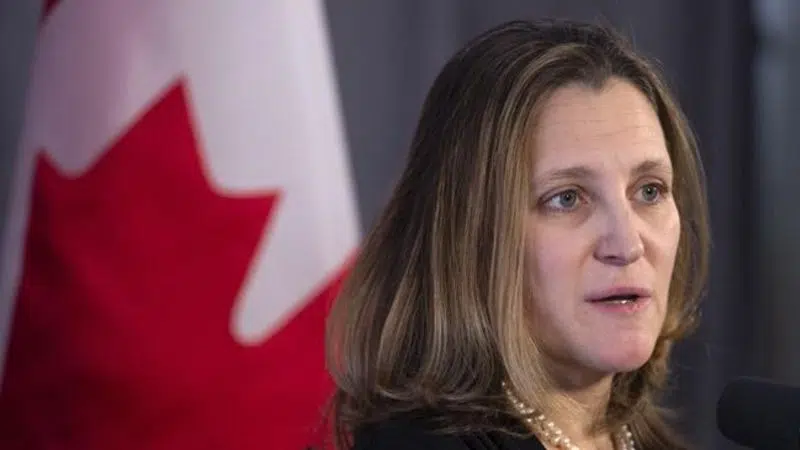
Canada condemns Turkish military incursion in northern Syria as destabilizing
OTTAWA — Canada has joined its major allies on Wednesday in firmly condemning Turkey’s military incursion into northern Syria.
Foreign Affairs Minister Chrystia Freeland made Canada’s position clear in a series of late-afternoon tweets, saying the unilateral action by Turkey risks rolling back the progress against Islamic State militants, also known as Daesh.
Turkey’s military action is targeting Kurdish forces, and comes after U.S. President Donald Trump abruptly decided Sunday that American troops would stand aside — a radical shift in American foreign policy.
“Canada firmly condemns Turkey’s military incursion into Syria today,” Freeland said on Twitter.
